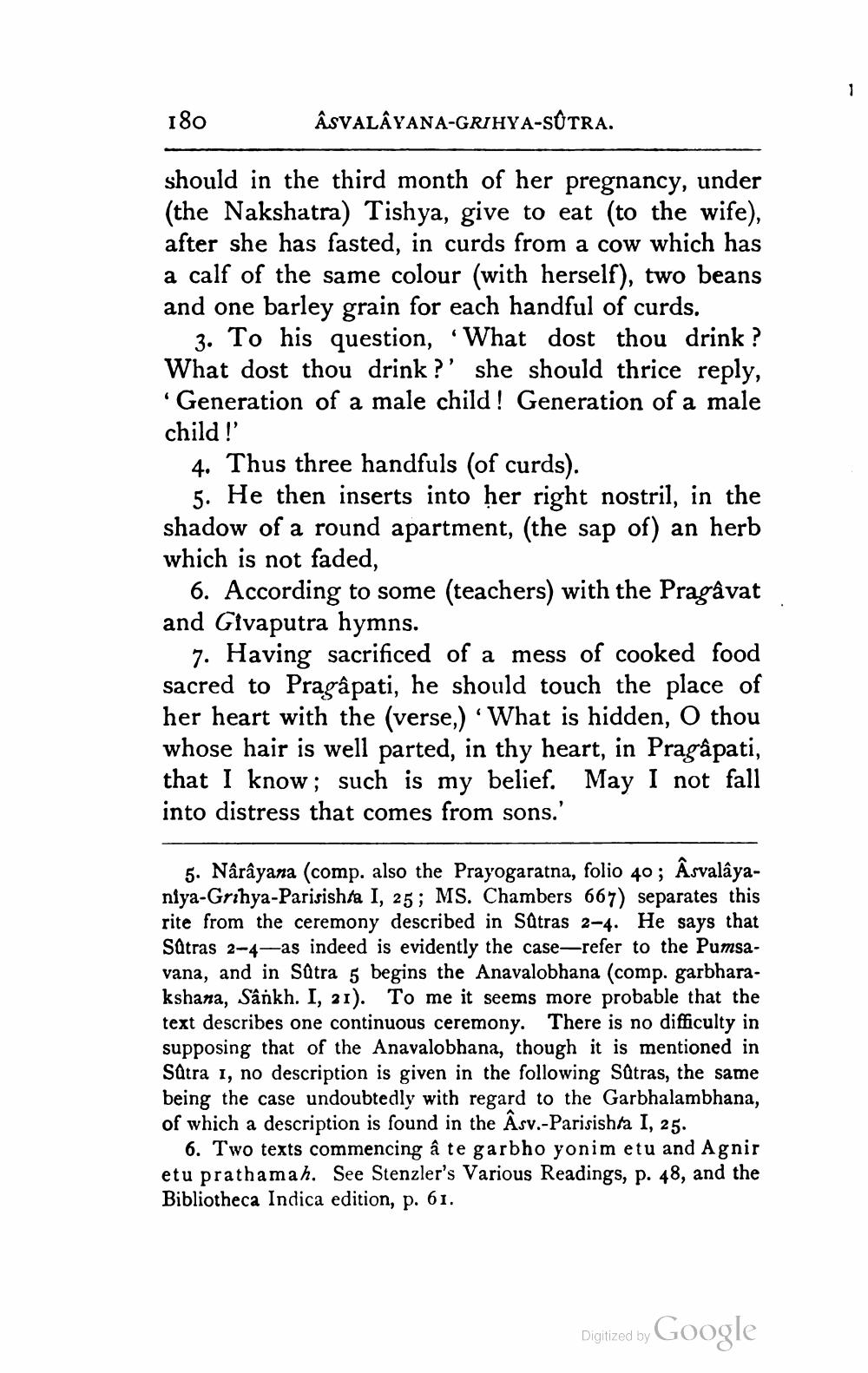________________
180
ASVALAYANA-GRIHYA-SÚTRA.
should in the third month of her pregnancy, under (the Nakshatra) Tishya, give to eat (to the wife), after she has fasted, in curds from a cow which has a calf of the same colour (with herself), two beans and one barley grain for each handful of curds.
3. To his question, What dost thou drink? What dost thou drink?' she should thrice reply,
Generation of a male child! Generation of a male child !
4. Thus three handfuls (of curds).
5. He then inserts into her right nostril, in the shadow of a round apartment, (the sap of) an herb which is not faded,
6. According to some (teachers) with the Pragavat and Givaputra hymns.
7. Having sacrificed of a mess of cooked food sacred to Pragâpati, he should touch the place of her heart with the (verse,) What is hidden, O thou whose hair is well parted, in thy heart, in Pragâpati, that I know; such is my belief. May I not fall into distress that comes from sons.'
5. Nârâyana (comp. also the Prayogaratna, folio 40; Âsvalâyaniya-Grihya-Parisishta I, 25; MS. Chambers 667) separates this rite from the ceremony described in Sätras 2-4. He says that Sätras 2-4-as indeed is evidently the case refer to the Pumsavana, and in Satra 5 begins the Anavalobhana (comp. garbharakshana, Sankh. I, 21). To me it seems more probable that the text describes one continuous ceremony. There is no difficulty in supposing that of the Anavalobhana, though it is mentioned in Sūtra 1, no description is given in the following Satras, the same being the case undoubtedly with regard to the Garbhalambhana, of which a description is found in the Asv.-Parisishta I, 25.
6. Two texts commencing â te garbho yonim etu and Agnir etu prathamah. See Stenzler's Various Readings, p. 48, and the Bibliotheca Indica edition, p. 61.
Digitized by Google




